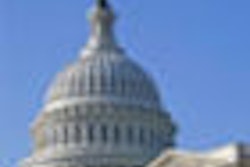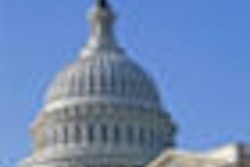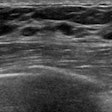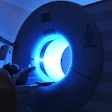Congress' passage on August 2 of the Budget Control Act of 2011 to lift the federal debt ceiling could negatively affect Medicare reimbursement -- and, therefore, medical imaging payments -- by piling new reimbursement cuts on top of already serious Medicare reductions.
The bill authorizes President Obama to increase the debt limit up to $2.4 trillion by 2013 in a series of stages, the first of which would cut nearly $1 trillion in federal spending over the next 10 years in exchange for raising the debt ceiling by another $900 billion. In this first stage, programs such as Medicare and Social Security will be protected.
But here's the catch: By November 23, a special 12-member congressional committee must find another $1.5 trillion in savings to allow for another debt ceiling increase of similar value -- and these cuts are guaranteed a vote in Congress by December 23.
If the special committee can't find at least another $1.2 trillion to shave off the budget through 2013, automatic cuts in both discretionary and mandatory programs, including Medicare, begin that year and continue until 2021.
Will this committee be able to find the savings? Time will tell, said Tom Greeson, a partner at Reed Smith who specializes in radiology-related regulatory matters.
"The big question is whether this special legislative debt committee will be able to find $1.5 trillion in savings and stave off the trigger that neither side wants," he told AuntMinnie.com. "It's clever, to establish this incentive to avoid reaching into Medicare or defense spending, but it's pretty high stakes."
And if the automatic cuts go into effect, changes in physician reimbursement will most likely be on the list, according to the American College of Radiology (ACR).
"ACR anticipates that the 12-member super committee undoubtedly will consider changes in Medicare physician reimbursement rates to cut costs," the ACR said in a statement. "Cuts to imaging will likely be part of a larger package of physician reimbursement reductions."
In fact, a summary of the bill released by the White House states that providers will take the brunt of the cuts.
"The deal includes an automatic sequester on certain spending programs to ensure that -- between the committee and the trigger -- we at least put in place an additional $1.2 trillion in deficit reduction by 2013," the White House said. "The sequester would be divided equally between defense and nondefense programs, and it would exempt Social Security, Medicaid, unemployment insurance, programs for low-income families, and civilian and military retirement. Likewise, any cuts to Medicare would be capped and limited to the provider side."
Doctors are vulnerable
Medicare providers are very vulnerable, especially because the payment squeeze is coming both from Congress in the debt ceiling legislation and from the federal government in rules from the U.S. Centers for Medicare and Medicaid Services (CMS), according to Cynthia Moran, assistant executive director for government relations at the ACR.
"I'm not wildly optimistic that this special committee will be able to come up with the savings," said Moran. "And if they don't, every Medicare provider will be subject to a 2% cut in payment. For some provider groups, like hospitals, this may not seem as bad as some of the other threats they've been living under. But Medicare physicians are most vulnerable. We're going to be in a difficult position -- getting nailed by the feds through CMS rules and potentially through Congress with this Medicare cut. We're fighting a two-front war."
Because the debt ceiling bill does not include a permanent fix to the Medicare reimbursement crisis, CMS continues to project a reduction of 29.5% on January 1 to the conversion factor for the Medicare Physician Fee Schedule for 2012, based on the application of the sustainable growth rate (SGR) formula. So even if the committee does find the savings, what will Congress do about the SGR?
The likelihood of getting a permanent SGR fix is slim, Moran said. Physicians will be lucky to get a one- or two-year patch tagged on to any legislation that's moving at the end of the year.
"If medical imaging was considered ... for the Korean trade bill, for heaven's sake, it will be considered for deficit reduction and Medicare cuts," Moran said, referring to a short-lived proposal last month to cut imaging reimbursement to pay for unrelated tariff reductions for South Korea. "The only possible good news is that Congress will be in need of such large dollar amounts [to shave off the budget before December] that it may overlook medical imaging and try for bigger fish in the sea."
All this points to an intense election season in 2012, Moran said.
"What this is all queuing up is the 2012 elections," she said. "This portends to be one of the most important elections of a generation, and we will see whether these guys are really willing to tackle hard issues."




















